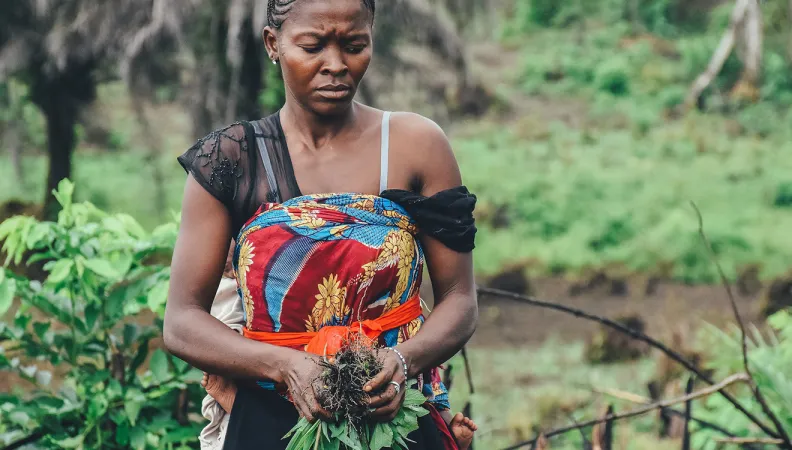Share the page
Gender and commons

-
Project start date
-
2022Status
Completed
-
Project end date
-
2022
-
AFD financing amount
-
40000
-
Country and region
-
Location
-
World
-
Research program
Gender, as a system of domination, contributes to structuring governance and resource allocation processes – an issue that is at the heart of the commons. This study focused on the links between the two concepts, in order to outline the conditions for an approach to the commons through the lens of gender.
Context
For over a decade, the study of the commons and their promotion by social movements have considerably developed. The foundations were laid by Garrett Hardin in 1968 in his article "The Tragedy of the Commons": it stated that only the privatization or nationalisation of an open access common resource could make it possible to profit from it while ensuring its renewal. By demonstrating that other forms of governance and institutional arrangements based on communities of users were possible, Elinor Ostrom opened the way to possible links with other fields (ecology, the digital sector) and other issues (climate change, norms and social interactions).
Questioning the boundaries between private and public spheres, the definitions of ownership, the management and sharing of resources, and the role of communities and traditional knowledge, the discussion around the commons could not fail to address studies on gender as well as feminist views and practices. These have enriched the theoretical and programmatic approaches of the commons. Often critical, this contribution has however not led to a coherent conceptual articulation, nor to a real aggiornamento of the different approaches to the commons viewed through the prism of gender.
Goal
Starting from a systematic review of academic productions devoted to the commons in the fields of economics, sociology and political sciences (and from a human rights perspective in particular), this study aimed at defining the conditions for an approach to the commons through the prism of gender.
The aim was to apply a gender approach to the three components of commons (resource, community, rules), as well as to their major characteristics (collective action, ownership, distribution of value). This approach aimed to highlight how gender, as a system of domination, contributes to structuring governance and resource allocation processes.
It was also about considering how women’s and men’s rights to life are satisfied (or not), what are their practical needs (improvement of living conditions) and their respective interests in reducing gender inequality. In this regard, the study paid particular attention to the achievement of the Sustainable Development Goals (SDGs) related to commons and gender equality, and their possible contradictions. In this perspective, all care-related activities - which are extensively studied from a gender perspective - have been the subject of specific attention: close links were likely to be established between the social organization for care services (for children, sick persons, the elderly and/or dependants, etc.) and those governing the management of the commons, especially the environment.
Method
OFCE defined a methodology to select the corpus of documents for this state of the art and its critical analysis. The research questions were asked from different perspectives: the feminist economy, the history of the commons, eco-feminism and feminist perspectives on the commons.
OFCE then carried out two case studies to illustrate:
- the current limits of the articulation between gender and commons,
- the perspectives that a critical approach through the prism of gender could open about their definition and associated discourses (especially in the field of development policies).
For example, by looking at the subject from the "care" perspective (and its critique), these case studies are likely to cross-examine practices regarding the management of different commons: natural resources or digital resources, basic services to the community, etc.
Results
The research project resulted in three deliverables:
- A bibliometric study presenting the state of the art, the methodological choices made and the result of the analysis. This report outlines complementary research proposals and a series of recommendations that could feed strategic reflections underway at AFD.
- Two notes to illustrate more precisely the interest of a critical approach through the prism of gender for the (re)definition of commons: "Water, a "one of its kind" common?" and “Urban commons through the prism of gender”
Lessons learned
The literature combining gender and reflection on the commons is not new, but remains insufficiently explored. It is heterogeneous and is analysed here from two points of view: academic and analytical on the one hand; normative and committed on the other hand.
The commons are not free from forms of oppression. The research agenda remains open: more empirical work is required to understand the processes that recompose existing hierarchies within the commons, as well as the modes of resistance from oppressed groups.
The bibliometric study paves the way for an analysis of the grey literature produced by development agencies and donors to understand how the practices of these actors are influenced by the connections between academic literature on gender and academic literature on the commons. With this in mind, the proposed reading grid could be adapted to identify discursive and normative frameworks for action (policy frames).
Without claiming to be exhaustive, this study demonstrates the extraordinary richness of an approach combining gender and commons to address the major transitions of our time (environmental, demographic, digital).
In order to outline a transformative approach to gender and commons, two case studies complete the bibliometric study: one is dedicated to urban commons and the other to environmental commons from a climate change perspective.
Contacts:
- Hélène Périvier, economist, OFCE
- Maxime Forest, political scientist, OFCE
- Stéphanie Leyronas, research officer, AFD
- Serge Rabier, research officer, AFD
